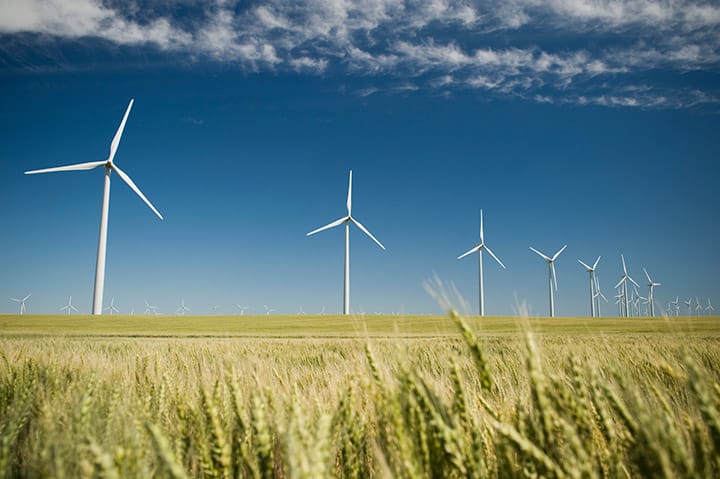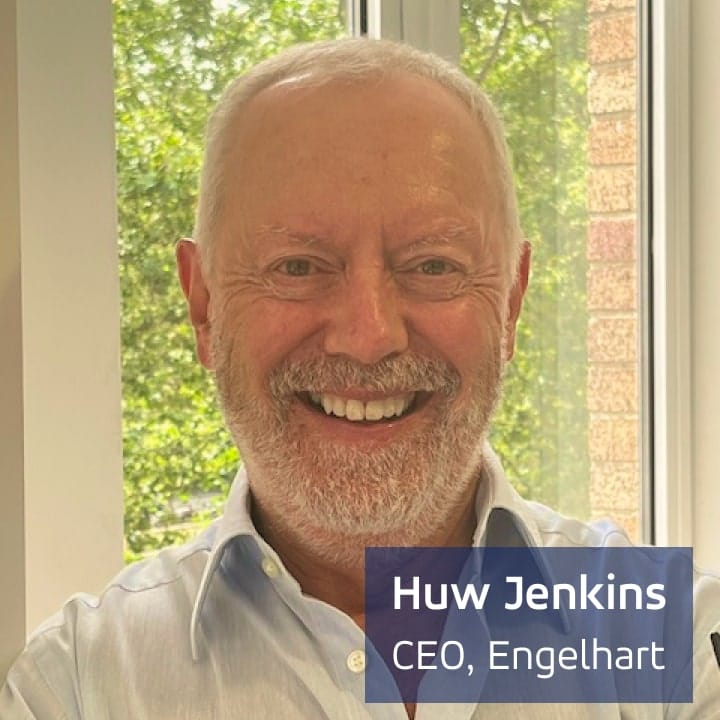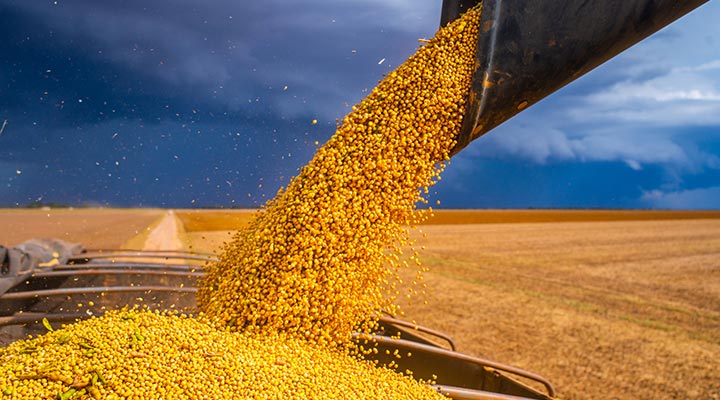
Ten Years of Engelhart: Interview with our CEO, Huw Jenkins
We mark our tenth anniversary this year.
So, we sat down with our CEO, Huw Jenkins, to reflect on ten years of Engelhart.
We discussed how the business began, the importance of an inclusive and agile culture and how commodities trading is growing ever more important as the world transitions to clean energy.

We are celebrating our 10th anniversary at Engelhart this year. How did the business start, and how do you reflect on how far it’s come in the last decade?
We’ve come a long way, for sure. The original idea for a commodities trading business came when I was at UBS with André Esteves. We’d bought Banco Pactual and had conversations about the success that commodities traders like Louis Dreyfus were having in Brazil. André was always interested in how much money they made in markets we weren’t participating in.
We knew we had smart people in our team, so we looked to expand part of the fixed-income business into commodities trading. That started relatively small at UBS, but when we all left together and set up BTG Pactual it was always on the radar.
Of course, there were other priorities in those first 2-3 years after setting up BTG, and the focus was on getting the Brazilian bank up to full speed after a turbulent few years.
By 2012, we’d established the foundations, but it became clear that the public markets didn’t like the idea of a Latin American bank expanding globally. We also felt like it wasn’t the best strategy given the surplus in banking capacity at that time.
Was that when you decided that diversifying into commodities might be the solution?
Yes, it was. We felt like we needed some revenue streams outside of the business cycle in Brazil, and we’d always had this interest in commodities. We thought that the Volcker Rule and Basel III would limit banks’ participation in commodity markets, and we could build something that would give us a point of differentiation, relatively capital-light, agile and people-based rather than asset-based.
We set up the commodity business in 2013, initially as a division of BTG, which meant we benefitted from the low funding cost of the bank, and those first few years were very exciting.
We expanded quickly, going from a handful of employees to almost a thousand across 30 offices, and we ended up having a global, multi-product, physical and financial trading platform.
But our business became too complex too quickly – we were, in effect, a victim of our growth story.
Of course, it was great to diversify into commodities markets, and it was a smart strategy for us to invest in oil, copper or soybeans. But we were managing a physical trading business, which meant that we had to understand local regulations and tax and deal with these specific and complex operational issues like storing, transporting and financing these commodities.
We also had to understand the unique counterparty risks, the credit exposure, and all the ESG concerns. If I’m being honest, it became a bit of a monster, and we made some mistakes.

But you’d seen the potential for commodities, particularly on the financial side?
Yes, totally. We’d discovered that we could make significant returns trading futures, and using our ability to manage volatility and mark-to-market risk, we could provide very competitive prices in the marketplace and make money for our shareholders.
But that success came at a challenging time domestically for BTG. We decided that having a complex commodity trading division added too much extra risk to us and the bank. We decided to spin off the commodity trading platform as a new entity. That’s when Engelhart was born.
Was that the moment you decided to move away from physical trading?
It was an opportunity to look closely at this highly complex business we’d created and understand how we could evolve.
Did the markets need another trader owning an oil storage tank in the North Atlantic or investing in a pipeline in Texas? Probably not, but we did have this expertise in the financial side of trading, so it just seemed like the clearer and simpler strategy.
We decided we needed to simplify the business and focus on three things – the energy transition and decarbonisation, our Brazilian agriculture business, supporting farmers with things like FX hedges, funding lines and asset management, and then the exciting new area (as it was back then) of developing research-based financial trading models, looking at quantitative strategies for instance which were only entering the commodities lexicon.
When you started out ten years ago, was it always the intention to build a business with a flat, agile structure?
We wanted to replicate some of the best elements of how we built BTG as a partnership. The bank works because everyone’s got a common level of interest and ability to influence the outcome. When setting up Engelhart, we realised that if we could have a flat structure with no corporate titles, that would encourage collaboration and productivity.
On a personal note, when I was CEO of UBS Investment Bank, I often compared it to being a bit like a Disney princess trapped in a fairy-tale castle!
In theory, you had all this power and influence, but all you were doing was feeding the bureaucracy. I spent my life going to meetings where we often talked about nothing but the next meeting!
Leaving that world was liberating. I was suddenly able to get things done again. We wanted to build a compelling value proposition and attract the talent that wanted to build something, not just keep the corporate machine ticking over.
I spent my life going to meetings where we often talked about nothing but the next meeting!
That agility has been the foundation of the first ten years of the business. We started trying to be a physical trading business, and after three years, we realised that wasn’t working, so we pivoted. That was only possible because of a flat, collaborative culture that encourages honesty.
I’m a huge believer that peer review is the best way of making sure you make the right decisions.

How key is Engelhart’s culture for attracting and retaining talent?
It’s crucial.
That’s not to say there aren’t some advantages of the more traditional hierarchical structure, certainly in terms of seeing how your career might develop at a company. Undoubtedly, that’s been an issue for us, and we’re thinking hard about giving people that same sense of progress in a flatter organisation.
The first ten years of Engelhart were about attracting the best people, often those who’d already cut their teeth in the industry and giving them the freedom to deliver great work. But I want the second 10 years of the business to be equally focused on developing our own talent; that’s why I’m excited about launching our first graduate scheme, for instance.
We’re an exciting potential employer in the commodities space. We’re not hierarchical; we’re transparent and open-minded and always looking to improve how we do things.
We’re a place where people can enjoy being at work and being part of a team rather than just purely focused on delivering this month or this quarter.
“Our goal is to be high-performance, not high-pressure”
You can’t talk about culture without talking about diversity and inclusion; what are your D&I priorities?
It’s such an important issue, and the short answer is that we’ve done some good things but probably not enough, and we’re working hard to address that.
The good news is that, as a business, we’re reasonably diverse in terms of ethnicity, nationality, and religion. But we’re particularly looking at how we can improve gender representation and help more women in the business develop into senior positions.
We’ve also been looking closely at how we can be more diverse in our recruitment. Unfortunately, there’s an industry-wide problem with gender diversity. The problem is that there isn’t a big enough pool of potential female talent out there.
Initiatives like our first graduate scheme will be crucial in this regard, and we’ll work hard to reach the most diverse group of candidates we can.
Coming to work at Engelhart is about helping you reach your fullest potential no matter who you are. If you’re ambitious and want to be part of a business with a clear sense of purpose and one that can also allow you to build something, then that’s what we can offer.
What’s clear is that commodity trading is at the intersection of many of the most important stories in the world right now, particularly the clean energy transition. What do you see as Engelhart’s role in that?
It’s becoming clear that decarbonisation is as significant an economic trend as digitisation was in the 90s with the beginning of the internet. Global politics, regulation and the markets are moving in that direction.
We’re also seeing the impact on the climate that wasn’t so evident even a decade ago. These record temperatures in Europe and China are a signal that we need to move quicker.
In terms of Engelhart’s role, if we want a world that’s burning fewer hydrocarbons and using more renewables, then you need to have price signals to do that. You need the technology and the regulation, of course, but you must also be able to price these things correctly.
The role we play in warehousing risk for market participants and providing liquidity and price discovery, especially in the forward markets, will be increasingly crucial to driving capital allocation and helping the world to move into cleaner energy and breaking that reliance on fossil fuels.
For example, you need to be able to ‘price’ pollution and create a market for carbon to help encourage companies and countries to clean up their act.
That all takes a lot of research and intellectual energy, and that’s why we’re investing heavily in so many of those areas, from market-leading weather modelling to mobility research, to understand better how we can forecast these trends and optimise them.
The question for us as a business is what else we can use these models for once we’ve built them. They’re an essential part of our trading strategy, but we can also use them in other functions, like risk management.
For example, one key challenge over the next twenty years will be dealing with renewable energy’s intermittent nature. We need to ask ourselves how to develop option and hedging models to protect those financing and developing the technology.

What keeps you awake at night?
Let me sleep on that!
I think clearly anyone who is deploying capital on a large scale will always have those niggling worries about unexpected events because of just how disruptive they can be for even the soundest trading strategies.
You can plan for the future with all the information you have, but then you suddenly discover that you have a bank contagion risk or something else that could easily contaminate our markets.
I’d say honestly that we all had a lot more sleepless nights in those first few years of building the business because there were so many unknowns. Whereas now we have a model which is much more fit for purpose, I sleep a lot more soundly!
What gets you out of bed in the morning?
I’m fortunate that I get paid to learn about and try to understand the world. I’ve always had that sense of curiosity, and virtually every day, I come into work, and I’m working with our great teams here and learning about new things, whether that’s technology, new markets, or new regulations.
As we’ve already mentioned, commodities are at the heart of many critical global themes, and I’ve learned more about how the world works in the last five years than I did in the previous 20.
I’m lucky to have a very interesting job at a very interesting time and to work at a company with lots of like-minded people whose job is to learn about the world and try to predict where it’s going next.
That’s a pretty great way to spend your days.
